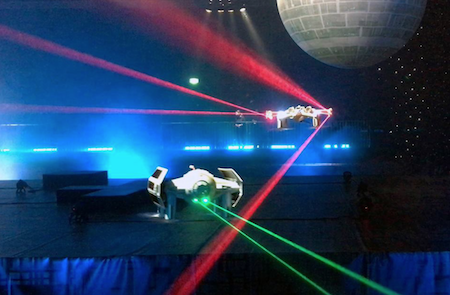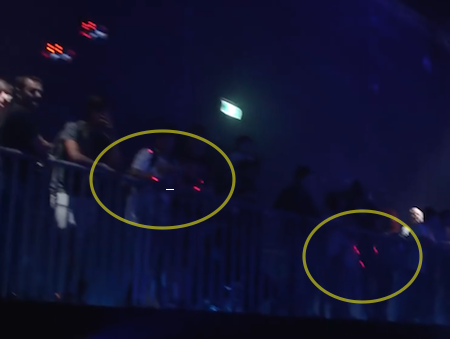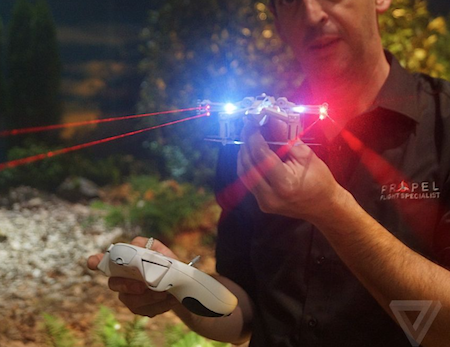Home
A comprehensive resource for safe and responsible laser use
Israel: Laser-equipped drones to fight incendiary kites and balloons
From late March to mid-June 2018, 450 fires caused by the aerial attacks burned about 7,500 acres of farmland and national parks, including 1,400 acres of wheat.
In response, the IDF has developed systems to locate the kites and balloons, either intercepting them or sending fire fighters to the landing locations. One interception technique uses a laser on a drone that in tests “has been successful in incinerating the incoming trajectory, neutralizing it and bringing it down.” It is expected to be deployed “soon” according to news stories in late June 2018.
From the JewishPress.com, L.A. Times, and The Times of Israel
US: Anti-laser laser for drone defense
To help defend drones against laser light, a California company has developed a defensive laser to be mounted on the drone. When it detects a laser attack, it first analyzes the incoming beam’s power, wavelength, pulse frequency and source. It then uses its own laser to counter the incoming beam.
The exact method is secret. New Scientist speculates “…it may involve fooling the control system into thinking it is hitting its target despite the laser actually pointing a few metres to the side. A direct hit would have produced a big burst of reflected light, so a pulse sent back by an anti-laser laser could make it look like the original laser was on target.”
The company is Adsys Controls of Irvine, California; the anti-laser laser system is called Helios. According to the company, “Helios is a low SWaP [Space, Weight and Power], completely passive Counter Directed Energy Weapon system capable of nullifying the enemy’s DEW [Directed Energy Weapon]. Consisting of a small UAV-mounted sensor package, Helios provides full analysis of the incoming DEW beam including localization and intensity. With this information it passively jams the enemy, protecting the vehicle and the payload.”
From Popular Science and New Scientist
UK: BALPA calls for high-powered lasers to be treated as offensive weapons
BALPA noted that there were 1,439 reports of laser attacks in 2015, and that 55% of pilots experienced a laser attack in the past 12 months. A spokesperson said BALPA “has been campaigning for a long time for high-powered lasers to be treated as what they are — offensive weapons.”
The association was also concerned with the threat of incidents involving drones.
A motion to ask for improved regulations passed at the meeting.
From a BALPA press release
Worldwide: Star Wars drones feature aerial laser battles
The “Star Wars Battle Quads” can move at speeds of 40-50 mph, and have clear propellers on the bottom to help maintain the illusion of a Millennium Falcon, X-Wing, TIE fighter or speeder bike flying on its own.
According to the manufacturer, Propel, up to 24 drones can have a laser battle simultaneously. A publicity photo shows laser beams clearly visible in a smoky environment:

Below is a freeze-frame from a Propel video that shows the drones (upper left corner) flying in a public demonstration. The circles show where the laser beams are shooting onto an audience.

According to the Verge, “When a ship is hit by a laser from an opposing ship, its paired controller … shakes in the pilot’s hands. After three direct hits, the drone will slowly spiral to the ground the game is over. Although the prototypes weren’t ready for one of these battles when we saw them, the lasers alone were pretty striking.”
The caption of this photo from the Verge states that the lasers are “Around the strength of a laser pointer.” Empire vehicles have green lasers, Rebellion vehicles have red.

The cost is reported to be between $200-$400.
From Wired, Engadget and the Verge. Freeze-frame from a video in a PC Mag article.